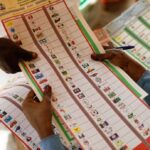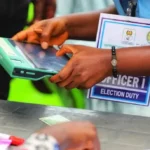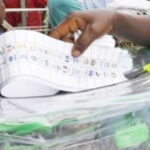The billions of naira being spent on election litigations by political parties, candidates and the Independent Electoral Commission (INEC) have raised concerns that Nigeria may have acquired the status of one of the most expensive democracies in the world, Daily Trust on Sunday reports.
As Nigerians await the outcome of the ongoing election petition tribunals at the federal level and the 28 states where governorship and state assembly elections were held on February 25 and March 18, respectively, there are suggestions that over N100 billion might have been spent on the litigations so far.
Daily Trust on Sunday could not establish the exact how much litigants earmarked for their cases as most of them declined comment.
Ahead of the elections, INEC had spent a humongous amount of money on printing ballot papers and other materials embedded with security akin to legal tender so as to stem the chances of them being compromised by politicians and other actors.
Emefiele’s arrest: SSS cries out over image-tarnishing plot
Oil theft allegation: Police, SSS should probe Dokubo – ex-Army GOC
In March, INEC announced that it budgeted over N3billion to defend the results of the 2023 general elections, while each of the presidential candidates was alleged to have spent at least N5billion in legal fees to prosecute the same election.
INEC had also in its Election Project Plan (EPP) document for the 2023 general elections proposed the sum of N305billion for the conduct of the general elections.
Election experts said this was not the case in other climes as ballot papers and other documents do not require elaborate security, which costs a lot of resources.
But despite the efforts by the electoral empire to reduce chances of contentions, many contenders were dissatisfied by the outcome and have headed to courts to seek redress.
Experts said this had opened doors for hundreds of lawyers to smile to the banks as their services are being sought after by litigants who want to “reclaim their stolen mandates” purportedly through the courts.
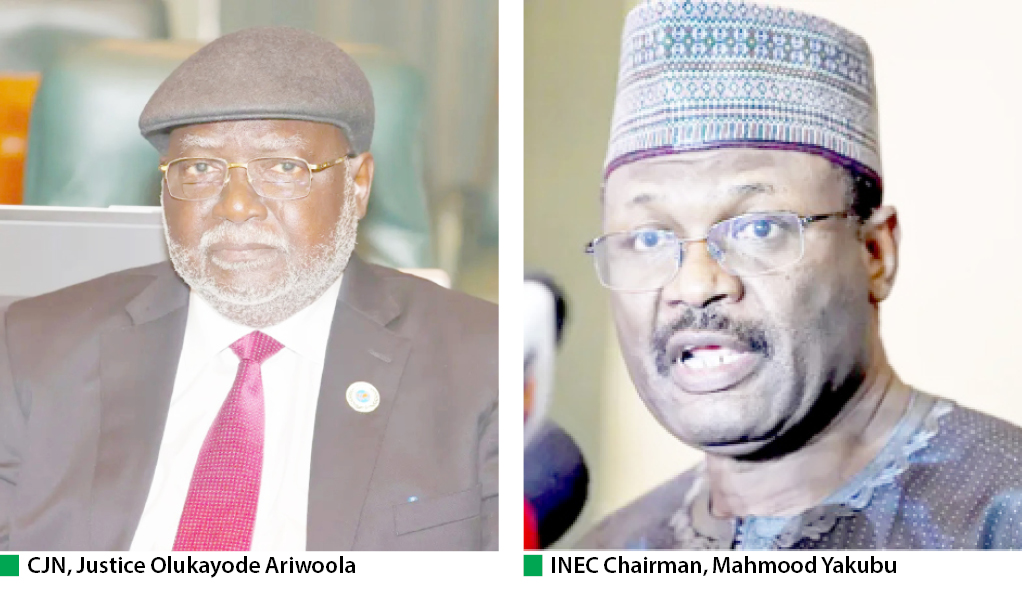
Candidates spend billions for legal battle
Now that the elections are over, attention has shifted to courts as aggrieved contestants have instituted litigations to reclaim what they called ‘their stolen mandates.’
In most of the cases, INEC has been included as an interested party.
Findings by Daily Trust on Sunday show that the presidential candidates of the major political parties in the elections have so far spent billions in securing legal representation at the Presidential Election Petitions Court in Abuja.
President Bola Ahmed Tinubu of the All Progressives Congress (APC), Atiku Abubakar of the Peoples Democratic Party (PDP), Peter Obi of the Labour Party (LP) and INEC have all set up top-of-the-ladder lawyers in the country to advance their arguments on the conduct of the presidential election.
In most of the states where governorship election was held, candidates on the losing sides have hired many senior lawyers to represent them at the various tribunals, ditto the state assemblies.
The actual money earmarked by those challenging governorship, national and state assembly elections outcome could not be ascertained, but what is obvious is that hundreds of cases have been instituted at various tribunals in the country.
In November 2022, INEC chairman, Professor Mahmood Yakubu, lamented that the commission was facing over 600 court cases that arose over the nomination of candidates for the 2023 general elections.
Yakubu revealed that the situation became worrisome when a political party served 70 court summons on the electoral body in one day on the same issue.
“Those were pre-election matters and they even rose to over 1,000 cases before the election.
“Post-election cases are more daunting as we have been joined in hundreds of cases. While some are genuine, others are just a distraction,” a source at INEC told Daily Trust on Sunday.
How litigation works
Lawyers who spoke to our reporter on the issue said the number in each of the legal teams would give a clue to the fees involved in their engagement.
An Abuja-based senior lawyer who pleaded anonymity because of the sensitivity of the matter said a minimum of N500 million could be paid to each member of a legal team or the entire team.
“It depends on the retainership fees agreed upon and the work to be done,” he said.
Another lawyer who also pleaded anonymity for a similar reason said fees charged by lawyers were determined by their expertise and experience, fame and the nature of the case.
“There are some senior advocates you can pay up to N1billion as individuals from the tribunal to the Supreme Court, let alone if they are to join with other senior external lawyers.
“But the general consideration for a lawyer who wants to charge less is the greater potential of the case to give them the name and attention they need in a matter, so you can’t get a uniform legal fee for all lawyers in the same kind of matter,” he said.
On his part, Malachy Nwaekpe wondered why the legal fee should be a source of inquiry, maintaining that “professional fee is between the lawyer and his client and of no concern to anyone.”
A breakdown of services rendered by lawyers in the course of the proceedings for which they receive the huge fees include payment of partner law firms, junior lawyers and ancillary staff, filing fees, payment of the cost of certification of documents, arrangement and conveyance of witnesses, fees for motions and interlocutory applications, movement of exhibits and documents, among others.
Tinubu had in a statement on March 6 through the APC legal adviser, Ahmad Usman El-Marzuq, announced the composition of 12 lawyers, comprising 11 senior advocates of Nigeria, to defend the petitions brought against him by the candidates of the two main opposition parties.
However, the president later upgraded the team to a 50-member legal team led by Wole Olanipekun, a Senior Advocate of Nigeria (SAN), which was inaugurated in Ikoyi, Lagos to appear at the tribunal in the next few days. He charged them to not only defend his mandate but the country’s democracy.
SANs in the team include Akin Olujimi, Emmanuel Ukala, Chief Afolabi Fashanu, Prof Konyinsola Ajayi, Chief Niyi Akintola, Prof Taiwo Osipitan, Tani Molajo, Tayo Oyetibo, Mike Igbokwe, Bayo Adelodun, Oladele Adesina, Oladipo Okpeseyi, Lawal Pedro, Chukwuma Ekomaru, Olasupo Shasore, Abiodun Owonikoko, Dr Hassan Liman, Adesegun Ajibola, Solomon Umoh and Tunde Busari.
Others are Prof Dakas Dakas, Ogwu James Onoja, Prof J. Olukayode Olatoke, Chief Hakeem Afolabi, Dr Muiz Banire, Oladapo Olanipekun, Abdulhakeem U. Mustapha, Yomi Aliyu, Olusola Oke, Kehinde Ogunwumiju, Bode Olanipekun, Prof Lawan Yusufari, Anthony Malik, Babatunde Ogala, Funmi Quadri, Remi Olatubora and Kunle Adegoke.
They also include Abdul Mohammed Rafindadi, Chief Anthony Adeniyi, Marcel Oru, M.A Abubakar, Said Sanusi, Adebayo Mutalubi Ojo, Hanafin Mumin and Prince Lukman Fagbemi.
Also, on March 8, Atiku inaugurated a 21-member team of senior advocates of Nigeria led by Joe-Kyari Gadzama, charging them to retrieve his mandate from those involved in an electoral heist.
Members of the team are Chris Uche (SAN), Paul Usoro (SAN), Tayo Jegede (SAN), Ken Mozia (SAN), Mike Ozekhome (SAN), Mahmood Magaji (SAN), Joe Abraham (SAN), Chukwuma Umeh (SAN), Garba Tetengi (SAN) and Emeka Etiaba (SAN).
Others are Goddy Uche (SAN), Prof Maxwell Gidado (SAN); the National Legal Adviser of the PDP, A. K. Ajibade (SAN), O. M. Atoyebi, (SAN), Nella Rabana (SAN), Paul Ogbole (SAN), Nuremi Jimoh (SAN), and Abdul Ibrahim (SAN).
Obi’s legal team is led by Levi Uzoukwu (SAN) and comprises 38 other senior advocates of Nigeria, which his close ally, Senator Victor Umeh, claimed were briefed in early March, preparatory to the elections.
The SANs, include Awa Kalu, Dr Onyechi Ikpeazu, Patrick Ikwueto, Ben Anyachebe, Sebastine T. Hon, Arthur Obi Okafor, Ikechukwu Ezechukwu, Jibrin Okutepa, Dr Mrs Valerie Azinge, Emeka Okpoko, Alex Ejesieme, Audu Anuga, among others.
Going by the provision of section 132(8) of the Electoral Act that the hearing and determination would be decided within 180 days, thereafter another 60 days for the appeal, lawyers work hard to comply with the timeframe.
Litigations expensive in Nigeria
On average, non-political litigation is still expensive to maintain, with an average cost of N250,000 in Federal Capital Territory (FCT) magistrate/district courts and high courts at N500,000 to N700,000.
At the Court of Appeal and Supreme Court, the cost could be up to N1m and N20m, particularly for the Court of Appeal in Abuja and Lagos. This does not include appearance/transport fees, which may range from N3,000 to N50,000, depending on the court and distance. If they are political matters, the cost is between N100m and N750m.
In Lagos State, litigations at a Magistrate’s Court and other lower courts may cost between N50,000 and N500,000, which may end within a year, while at the High Court and coordinate courts, such as National Industrial Court, military tribunals, tax tribunals and others, litigants may pay between N500,000 and N5m. Also, depending on the complexity and duration, it may be as high as N15m, especially on political cases.
In Kano State, the cost of litigation and legal fees is not fixed, according to checks by Daily Trust on Sunday. A lawyer said he received N100,000 as legal fee for a minor civil case.
It is a privileged matter – SAN
A lawyer in the Obi team, Ikechukwu Ezechukwu (SAN), said the professional fee for a lawyer was a privileged discussion that ought not to be for the public.
Abey Mohammed (SAN) said he was not involved and could not say the amount involved. He, however, added that lawyers do a lot of work in the course of the proceedings at election tribunals.
“Lawyers have to assemble millions of pages worth of documents and divide them among those working on the case.
“Many of the lawyers handling presidential and governorship election petitions would move to a different jurisdiction to do the work.
“If you employ people and they give you the fees and you can pay, there is nothing wrong with it.
“I think if the cost is very high and lawyers can beat it down, it is good, but it is commensurate with the work they do,” he said.
A legal practitioner in Abuja, Aminu Abdullahi, said the legal fees for political matters could be higher.
He said, “If you charge N250,000 for a civil case, for example, the chances are that you would charge N500,000 or more on an election matter.
“Politicians are desperate human beings, so they are ready to spend anything to achieve their goals. And honestly, lawyers use such moments to also make fortunes.”
On why politicians don’t announce the actual amount they spent in courts, he said, “How do you expect them to declare such spending? It is not possible. In fact, they could land in trouble. Remember that there is a ceiling to what politicians should spend on campaigns and others, but certainly, it is not realistic.”
On the way forward Abdullahi said, “The less we spend money on elections and litigations, the better, so that there would be resources to provide basic needs for the people.”
No need to pay for justice – CSO
The executive director of the Civil Society Legislative Advocacy Centre (CISLAC) and the chairman of the Transition Monitoring Group (TMG), Auwal Rafsanjani, said the quest for political democracy, constitutional justice and rule of law should not result in the commercialisation of the judiciary.
He added that such expenditures in legal fees could result in corruption, “because if you spend much and get into power, you would be thinking of how to recover the money.”
A director of an Abuja-based think tank, Charles Onunaiju, said the huge sums expended on the prosecution of post-election litigations showed that Nigeria is on a democratic path that is unsustainable.
He said the funds ought to have been used to improve the country’s economy when small scale businesses are shutting down, unemployment is on the rise while lawyers are expanding their practice.
He questioned why the courts are always called upon to decide elections when other advanced countries have a formula that makes the results believable.
In the same vein, the national coordinator of the Nigerian Citizens and Unity Concern (NCUC), Ambassador A. A. Lawan-Uba, said Nigeria had proved overtime that it lacked the capacity to conduct an election that would be credible and acceptable.
“Until we correct our democracy and reduce rigging, there is no change in the country.
“Even inside the court there is rigging. In fact, rigging began from the court because a judge cannot give you good judgement if you don’t have money, and lawyers will not handle your case properly if you don’t give enough money; the entire country is corrupt,” he said.
However, Professor Abdullahi Shehu Zuru, a Senior Advocate of Nigeria (SAN), said the post-election litigation may be expensive from the filing to the delivery of judgement in high profile cases like presidential, governorship, and National Assembly positions, but the process is an important part of the development of the country’s jurisprudence.
“It helps to advance the course of justice and the course of rule of law because judicial precedence relies on the binding judicial decisions of superior courts,” he said.
He said it was wrong for anybody to suggest that the huge cost of post-election litigation has anything to do with influencing the mindset of judicial officers and their decisions.
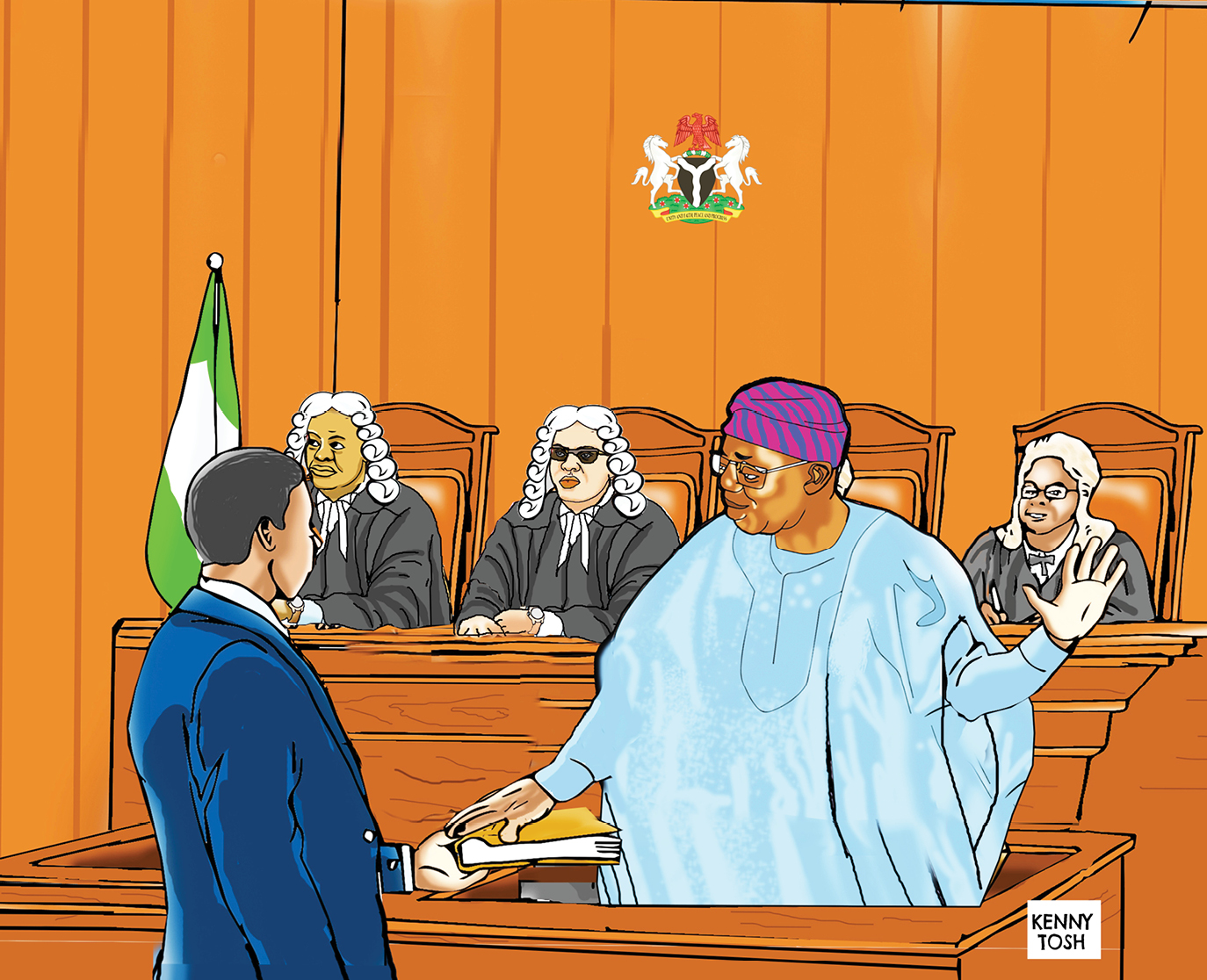
 Join Daily Trust WhatsApp Community For Quick Access To News and Happenings Around You.
Join Daily Trust WhatsApp Community For Quick Access To News and Happenings Around You.
